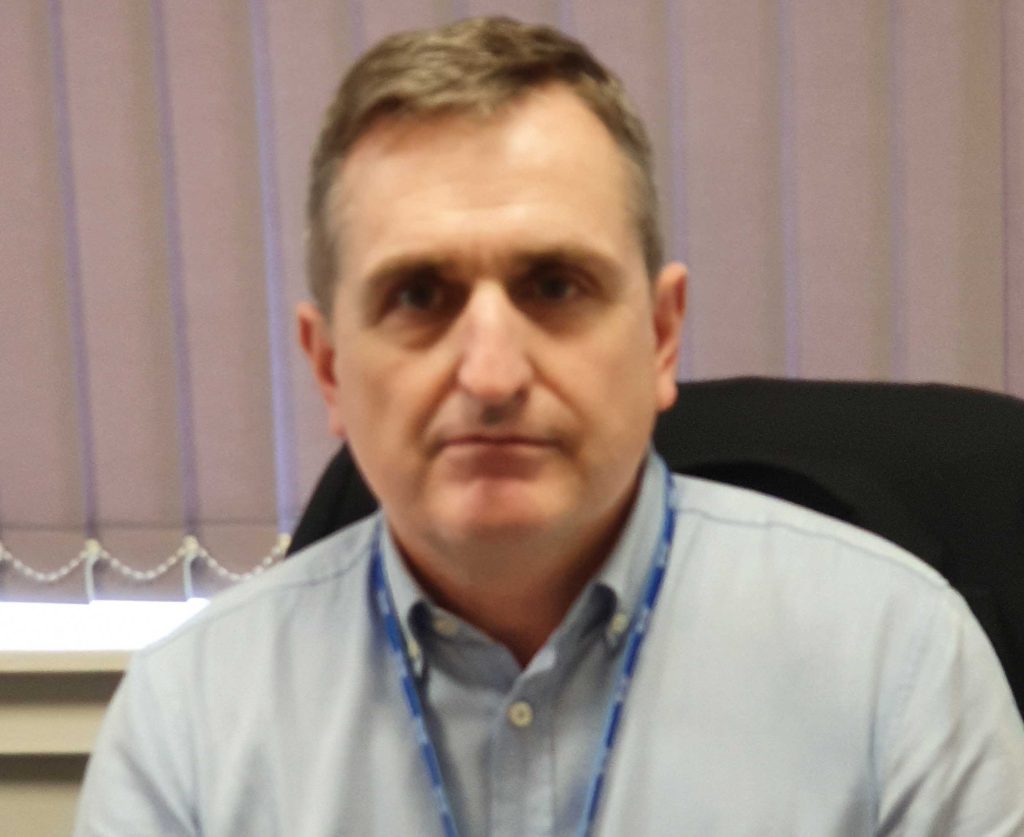THE LOCAL NHS is in an ‘uncomfortable’ position going into the winter.
That was the view expressed by Chief Executive Jeff Ace during a public discussion on Monday around winter planning – noting it is not within the power of the NHS alone to address the pressures within its systems.
Speaking at the meeting of NHS Dumfries and Galloway Board, Mr Ace said, ‘It’s not something the NHS can actually fix’, adding that Partnership working was required in order to address risk of harm this winter.
Mr Ace’s comments came after non-executive Board member Marsali Caig spoke of a recent visit to Dumfries and Galloway Royal Infirmary, when she saw firsthand the number of people who no longer needed medical help but were still in hospital unable to return home.
Ms Caig said: “There are real people behind these figures. I paid a visit to a ward in DGRI last week, and it was really sobering to see that one full side of a corridor was full of rooms with people who were delayed transfers of care.”
Concerned for their welfare, she added: “People are becoming deconditioned while they’re waiting.
“For those people stuck in hospitals, who clinically don’t need to be there, I think we just need to remind ourselves here that these are people we’re talking about, and we need to think in a very human way about that.”
Ms Caig’s comments came after a Day of Care audit published on November 30 revealed that 51 of the 81 people within the region’s cottage hospitals (63.7%) no longer required clinical treatment, and should either have been back at home or in a homely environment.
Addressing the situation, Mr Ace said: “The scale of delayed discharges at the moment, and what that’s then doing to our ability to provide safe care for those people who DO need clinical intervention, is such that, unless we see an ability of the Partnership to reduce those numbers, then we are going into winter in a really risky state.
“And it’s quite hard for us as an NHS to mitigate that risk. It’s not a risk you can mitigate by opening extra beds, because these people don’t need clinical intervention. They don’t need this deconditioning. Instead, they need to be back in a homely setting, getting back on the road to their independent living.
“So it’s not something the NHS can actually fix, but it is hurting our ability to safely care for those patients who DO need our intervention.”
Mr Ace praised the risk assessment framework that was presented by officers to the Board on Monday, along with the risk analysis and real time data.
However, he noted the impact of the current situation on scheduled operations being cancelled due to lack of capacity, and an inability to move emergency patients into a bed.
Mr Ace said: “As two systems – ourselves and the council – and using the vehicle of the Partnership, we do need to demonstrate improvement here or we are essentially tolerating harm that is going to come to our citizens, either patients in clinical care, or these patients who no longer need clinical care but who need to be supported back home.
“So I think it’s quite an uncomfortable position to be going into a winter in, and one that’s showing quite a high degree of risk to the system, and a high degree of pressure on our staff.”






